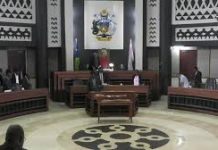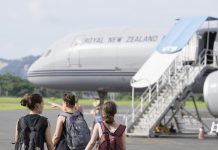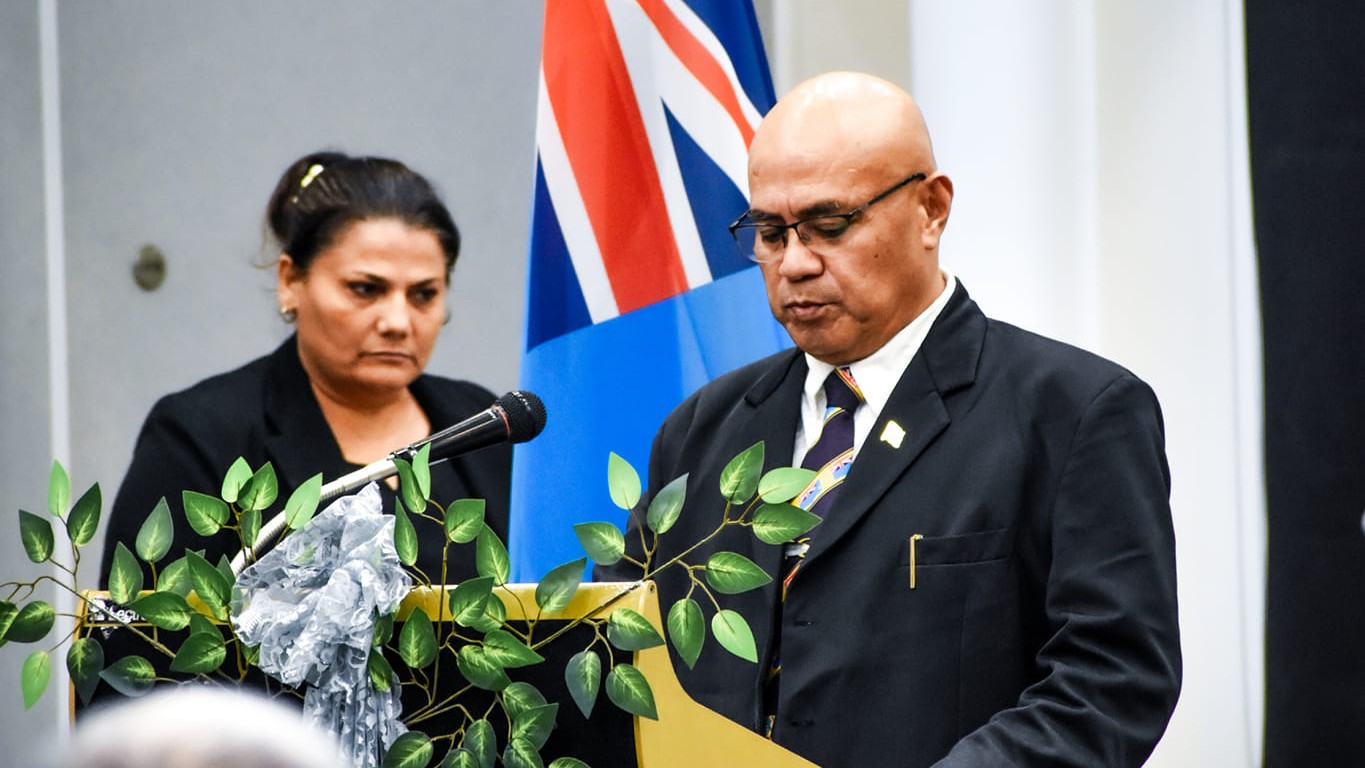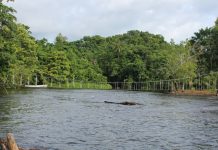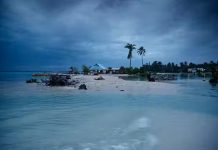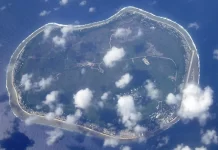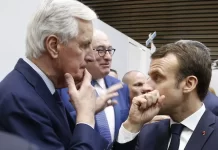By Don Wiseman, RNZ Pacific Senior Journalist
The existential threat posed by climate change remains the biggest concern for the new Tuvalu administration.
The government is also about to launch a drive to better inform the people about the contents of a treaty with Australia and its leader is firm that the country is not getting into bed with Beijing.
These are some of the matters discussed in an expansive interview RNZ Pacific’s Don Wiseman had with the newly elected Prime Minister Feleti Teo.
Teo has had long involvement in regional agencies in the Pacific, the Pacific Islands Forum, the Forum Fisheries Agency and most recently the Tuna Commission.
Don Wiseman (DW): We’ve talked a number of times over the years. You’ve been involved with a large number of regional organisations and been at the top of a number of them. What is it that brought you back to Tuvalu?
Feleti Teo (FT): Well, I’ve been away for more than 20 years so I think it’s time for me to come back and make a contribution domestically. Last year, I ended by my tenure as the executive director of the Western and Central Pacific Fisheries Commission. It was an eight year stint in Micronesia, and it was timely that the election was coming up. So, I fought our contest hoping to be a member of parliament but never my contemplation that I will rise to the prime ministership of the country.
DW: There were no inducements offered to you weren’t they? You didn’t have people saying, ‘look, you come in and if you win you get the prime ministership?’
FT: No, no, no, none of that [laughing]. We had to go as individuals around the island community and hoping to stand as individuals. It was only after the outcome of the elections that we had to form a coalition and do what politician do, get the numbers in line, and try and form the government.
DW: You’ve spoken of your concerns with the Falepili Treaty with Australia. What is it you want to change about that treaty?
FT: I think it was the manner in which the treaty was discussed. There were hardly any public consultations at all, despite the fact that this is a significant landmark arrangement between the two countries. So when the whole thing was announced, as they signed in Rarotonga at the margins of the Forum Leaders Meeting last year, everybody was taken by surprise. And that’s why my new administration has committed to embark on an educational program informing the country about the content of the treaty, what implication it has on the people of Tuvalu and the country’s obligation under the treaty. So we’ll do that shortly.
DW: All right. Are their things in it you would change?
FT: Well, there is a provision in one of the paragraphs in the treaty, and that relates to security arrangement. I think the text, or the formulation, gives the appearance of encroaching onto the values – integrity was the requirement for Tuvalu and Australia to mutually agree for Tuvalu to undertake discussions with other parties concerning security arrangements. I think the phrase ‘mutually agreed’ kind of give the appearance that Tuvalu is conceding its sovereign right to decide on its own to Australia.
DW: So do you think they are?
FT: No, I don’t think they are because if you read the entirety of the treaty, assurances of Tuvalu’s sovereignty are written all over the treaty. There are also safeguards in the treaty frameworks that allow Tuvalu to pull the plug and get out of the treaty, if it appears to value that its sovereignty, the integrity of its sovereignty, has been undermined by the treaty arrangement. I encourage people to read the whole treaty rather than just focussing on that provision of the treaty that gives an appearance. What I’ve been talking to an Australian official is that we’ll we’ll look into some arrangement, stop short of revising the treaty, if possible, that guaranteed and assured the integrity of the sovereignty of Tuvalu in this arrangement,
DW: The other well publicised issue going into the election was Tuvalu’s relationship with Taiwan. Is that under threat at all from your administration?
FT: No, and it was never an issue during the election. Don, I keep on telling the media outside of Tuvalu that I have far more immediate and pressing development challenges than to waste our efforts in engaging in the two China discourse. I have to attend to improving the quality of our health services, to run educational services, we have chronic shipping challenges, and service connectivities. These are more pressing and immediate challenges that we need to focus and mobilise all available resources to address those challenges. Of course, those challenges are being compounded and further complicated by the impact of climate change and sea level rise.
DW: Well, I’ll come back to some of those challenges in a minute. But have there been any approaches by Beijing?
FT: Not that I’m aware of.
DW: These questions come up, of course, because of the activities of Beijing within the region over the last three or four years and the way that allies of Taiwan have changed course. That’s the reason that people ask questions about Tuvalu.
FT: Yep.
DW: So no approaches from Beijing?
FT: I have been Prime Minister for the last two weeks. There hasn’t been that I’m aware of.
DW: In terms of these challenges and a big one is transport. How do you overcome that? Lots of much larger countries battling similar sorts of issues. So how do you improve air links and shipping links?
FT: Well, we’re committed to undertake a proper and thorough review of the services, identify the extent of our needs; shipping, our air services, and then develop appropriate remedial actions that will address those ones. I don’t have the answer right now and I’m hoping that we will shortly have the right technical people to give us options. I have appointed a very strong minister to look after that portfolio and I expect him to deliver on those challenges,
DW: You would be looking for significant donor aid to help out there?
FT: Obviously. We also have to utilise the current shipping lines. It’s an issue that cuts across the region. I think the solution may not rest squarely on Tuvalu, we might have to collaborate with other neighboring countries and come up with some shared services.
DW: Now for many years Tuvalu has been at the forefront of the fears about the impact of climate change. What are your government’s plans, specifically to try and cope, try and mitigate? What are you going to do?
FT: We made it our top priority of the list of priorities that we have identified and announced during our inauguration and formation of the new government. We will certainly continue the very good work former administrations have done in terms of the advocation of the special case of Tuvalu. So we’ll continue to make those noises. Hopefully, we will attract donors to assist us.
There is a major coastal adaptation programme. We’ve been building and reclaiming land and protecting our coastline from the tidal surges. Last month, we had the highest tide, king tide [of the] season in Tuvalu, and it was ery sad to watch our coastline being devastated by tidal surges. Unfortunately, the forecast are not very bright for Tuvalu. They said that in 2050, half of the island of Funafuti will be regularly flooded by routine tidal surges. And in another 50 years after that 90 percent of the island, Funafuti, will be flooded regularly by tidal surges. So it’s not a bright forecast for us. We’re trying to adapt and build up our land areas so that they will be able to resist the impact of sea level rise. But that’s not an easy task.
DW: No. So you’re using material out of the sea to build up with. I guess there’s not much else you can use?
FT: That’s right, And we’ve had technical people to undertake environmental impact assessments.
DW: There’s been some discussion of Tuvalu wanting to ensure that if its islands disappeared under the water that the country would still retain its exclusive economic zone because that’s incredibly valuable because of fish stocks and things like that. Is more progress being made on that? Is that something your government would focus on?
FT: Absolutely. The parliament of Tuvalu before its dissolution last year, were able to bring into effect a new constitution. And that constitution can recognise the existence of Tuvalu as a state into perpetuity in the event that it loses its land territory. So at least there are constitutional provisions for that. We’ve also mounted a campaign that acknowledges Tuvalu’s existence in the event that it lost most of its land territory.
DW: You have had some very high-profile people involved in the climate change saga that Tuvalu is going through, people like Enele Sopoaga and Simon Kofe. So are they going to be centrally involved in your campaign as far as that goes?
FT: Well, the latter is my minister for communication and transport, so he will be intimately involved. Former prime minister Enele is not part of our caucus, but I will certainly take advantage of his reservoir of knowledge and ability if he is willing to work with the government.



